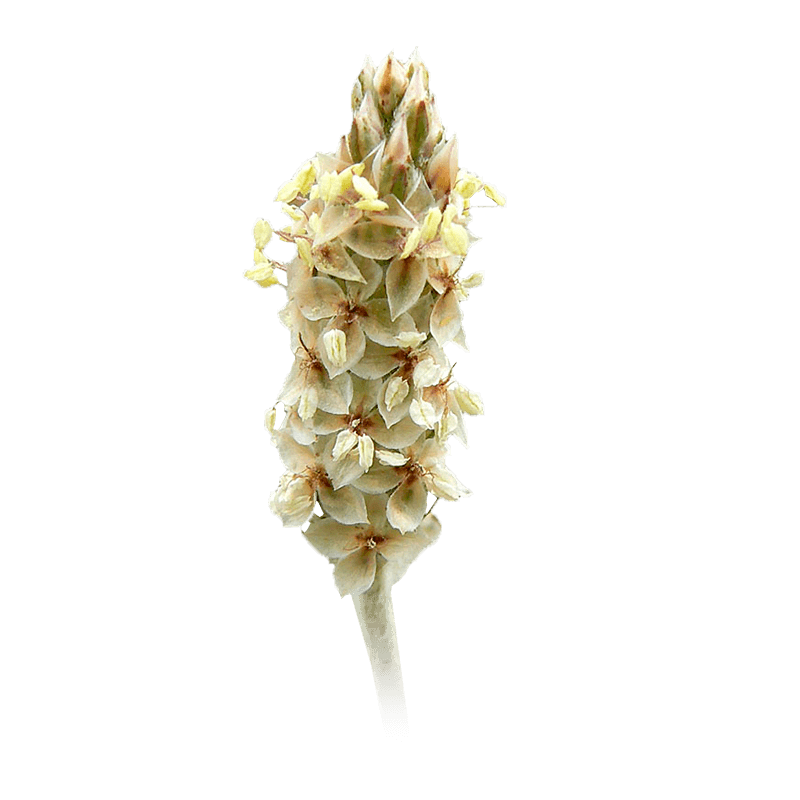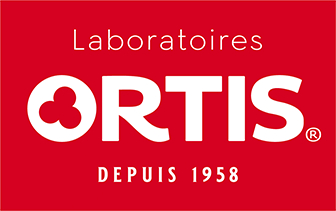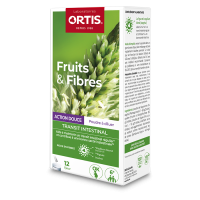
Ispaghula
Latin name
Origin
Used part
Active components
Usage
Bibliographical references
- Laxative drug products for over-the-counter human use; psyllium ingredients in granular dosage forms. Final rule.
Fed Regist. 2007 Mar 29;72(60):14669-74.
U.S. Government Printing Office: http://www.gpo.gov/fdsys/pkg/FR-2007-03-29/pdf/E7-5740.pdf - Plantago ovata.
Ceranić M, Kecmanović D, Pavlov M, Sepetkovski A, Kovacević P, Stamenković A, Masirević V, Ranković V.
Acta Chir Iugosl. 2006;53(1):9-11.
Pubmed: http://www.ncbi.nlm.nih.gov/pubmed/16989139 - The gel-forming polysaccharide of psyllium husk (Plantago ovata Forsk).
Fischer MH, Yu N, Gray GR, Ralph J, Anderson L, Marlett JA.
Carbohydr Res. 2004 Aug 2;339(11):2009-17
Pubmed: http://www.ncbi.nlm.nih.gov/pubmed/15261594 - Plantago ovata. (Psyllium).
Alternative Medicine Review
Altern Med Rev. 2002 Apr;7(2):155-9.
Alternative Medicine Review: http://www.altmedrev.com/publications/7/2/155.pdf - Clinical response to dietary fiber treatment of chronic constipation.
Voderholzer WA, Schatke W, Mühldorfer BE, Klauser AG, Birkner B, Müller-Lissner SA.
Am J Gastroenterol. 1997 Jan;92(1):95-8.
Pubmed: http://www.ncbi.nlm.nih.gov/pubmed/8995945 - Digestibility and bulking effect of ispaghula husks in healthy humans.
Marteau P, Flourié B, Cherbut C, Corrèze JL, Pellier P, Seylaz J, Rambaud JC.
Gut. 1994 Dec;35(12):1747-52.
PMC: http://www.ncbi.nlm.nih.gov/pmc/articles/PMC1375264/ - The effects of ispaghula on rat caecal fermentation and stool output.
Edwards CA, Bowen J, Brydon WG, Eastwood MA.
Br J Nutr. 1992 Sep;68(2):473-82.
Pubmed: http://www.ncbi.nlm.nih.gov/pubmed/1445826 - The efficacy of Plantago ovata as a regulator of intestinal transit. A double-blind study compared to placebo.
Tomás-Ridocci M, Añón R, Mínguez M, Zaragoza A, Ballester J, Benages A.
Rev Esp Enferm Dig. 1992 Jul;82(1):17-22.
Pubmed: http://www.ncbi.nlm.nih.gov/pubmed/1520545 - Plantago ovata seeds as dietary fibre supplement: physiological and metabolic effects in rats.
Leng-Peschlow E.
Br J Nutr. 1991 Sep;66(2):331-49.
Pubmed: http://www.ncbi.nlm.nih.gov/pubmed/1662073 - A review of the efficacy of traditional Iranian medicine for inflammatory bowel disease.
Rahimi R, Shams-Ardekani MR, Abdollahi M.
World J Gastroenterol. 2010 Sep 28;16(36):4504-14.
PMC: http://www.ncbi.nlm.nih.gov/pmc/articles/PMC2945480/ - Plantago ovata consumption and colorectal mortality in Spain, 1995-2000.
López JC, Villanueva R, Martínez-Hernández D, Albaladejo R, Regidor E, Calle ME.
J Epidemiol. 2009;19(4):206-11.
Pubmed: http://www.ncbi.nlm.nih.gov/pubmed/19561384 - Evaluation of prebiotic potential of refined psyllium (Plantago ovata) fiber in healthy women.
Elli M, Cattivelli D, Soldi S, Bonatti M, Morelli L.
J Clin Gastroenterol. 2008 Sep;42 Suppl 3 Pt 2:S174-6
Pubmed: http://www.ncbi.nlm.nih.gov/pubmed/18685505 - A diet supplemented with husks of Plantago ovata reduces the development of endothelial dysfunction, hypertension, and obesity by affecting adiponectin and TNF-alpha in obese Zucker rats.
Galisteo M, Sánchez M, Vera R, González M, Anguera A, Duarte J, Zarzuelo A.
J Nutr. 2005 Oct;135(10):2399-404.
The Journal of Nutrition: http://jn.nutrition.org/content/135/10/2399.long - Intestinal anti-inflammatory activity of dietary fiber (Plantago ovata seeds) in HLA-B27 transgenic rats.
Rodríguez-Cabezas ME, Gálvez J, Camuesco D, Lorente MD, Concha A, Martinez-Augustin O, Redondo L, Zarzuelo A.
Clin Nutr. 2003 Oct;22(5):463-71.
Pubmed: http://www.ncbi.nlm.nih.gov/pubmed/14512034 - Dietary fiber down-regulates colonic tumor necrosis factor alpha and nitric oxide production in trinitrobenzenesulfonic acid-induced colitic rats.
Rodríguez-Cabezas ME, Gálvez J, Lorente MD, Concha A, Camuesco D, Azzouz S, Osuna A, Redondo L, Zarzuelo A.
J Nutr. 2002 Nov;132(11):3263-71.
The Journal of Nutrition: http://jn.nutrition.org/content/132/11/3263.long - Mucopolysaccharides from psyllium involved in wound healing.
Westerhof W, Das PK, Middelkoop E, Verschoor J, Storey L, Regnier C.
Drugs Exp Clin Res. 2001;27(5-6):165-75.
Pubmed: http://www.ncbi.nlm.nih.gov/pubmed/11951574 - Randomized clinical trial of Plantago ovata seeds (dietary fiber) as compared with mesalamine in maintaining remission in ulcerative colitis.
Fernández-Bañares F, Hinojosa J, Sánchez-Lombraña JL, Navarro E, Martínez-Salmerón JF, García-Pugés A, González-Huix F, Riera J, González-Lara V, Domínguez-Abascal F, Giné JJ, Moles J, Gomollón F, Gassull MA.
Am J Gastroenterol. 1999 Feb;94(2):427-33.
Pubmed: http://www.ncbi.nlm.nih.gov/pubmed/10022641 - Effect of fiber supplements on internal bleeding hemorrhoids.
Perez-Miranda M, Gomez-Cedenilla A, León-Colombo T, Pajares J, Mate-Jimenez J.
Hepatogastroenterology. 1996 Nov-Dec;43(12):1504-7.
Pubmed: http://www.ncbi.nlm.nih.gov/pubmed/8975955 - Hypoglycemic and Hypolipidemic Potential of a High Fiber Diet in Healthy versus Diabetic Rabbits.
Díez R, García JJ, Diez MJ, Sierra M, Sahagún AM, Calle AP, Fernández N.
Biomed Res Int. 2013;2013:960568.
PMC: http://www.ncbi.nlm.nih.gov/pmc/articles/PMC3666357/ - Soluble fibre (Plantago ovata husk) reduces plasma low-density lipoprotein (LDL) cholesterol, triglycerides, insulin, oxidised LDL and systolic blood pressure in hypercholesterolaemic patients: A randomised trial.
Solà R, Bruckert E, Valls RM, Narejos S, Luque X, Castro-Cabezas M, Doménech G, Torres F, Heras M, Farrés X, Vaquer JV, Martínez JM, Almaraz MC, Anguera A.
Atherosclerosis. 2010 Aug;211(2):630-7.
Pubmed: http://www.ncbi.nlm.nih.gov/pubmed/20413122 - Effect of two doses of a mixture of soluble fibres on body weight and metabolic variables in overweight or obese patients: a randomised trial.
Salas-Salvadó J, Farrés X, Luque X, Narejos S, Borrell M, Basora J, Anguera A, Torres F, Bulló M, Balanza R; Fiber in Obesity-Study Group.
Br J Nutr. 2008 Jun;99(6):1380-7.
Pubmed: http://www.ncbi.nlm.nih.gov/pubmed/18031592 - Plantago ovata husks-supplemented diet ameliorates metabolic alterations in obese Zucker rats through activation of AMP-activated protein kinase. Comparative study with other dietary fibers.
Galisteo M, Morón R, Rivera L, Romero R, Anguera A, Zarzuelo A.
Clin Nutr. 2010 Apr;29(2):261-7
Pubmed: http://www.ncbi.nlm.nih.gov/pubmed/19735963 - Effects of soluble fiber (Plantago ovata husk) on plasma lipids, lipoproteins, and apolipoproteins in men with ischemic heart disease.
Solà R, Godàs G, Ribalta J, Vallvé JC, Girona J, Anguera A, Ostos M, Recalde D, Salazar J, Caslake M, Martín-Luján F, Salas-Salvadó J, Masana L.
Am J Clin Nutr. 2007 Apr;85(4):1157-63.
The American Journal of Clinical Nutrition: http://ajcn.nutrition.org/content/85/4/1157.long - The effect of a Plantago ovata seed containing preparation on appetite variables, nutrient and energy intake.
Turnbull WH, Thomas HG.
Int J Obes Relat Metab Disord. 1995 May;19(5):
The health claims that feature on our website in relation to the plants contained in our products are compliant with the list of health claims awaiting final assessment by the Community authorities (cf. website of the European Commission: http://ec.europa.eu/nuhclaims/). However, they may be subject to modification following their assessment by the national competent authorities.
The health claims relating to other nutrients or substances contained in our products that feature on our site are compliant with Regulation No. 432/2012 of the Commission of 16 May 2012 which establishes a list of authorised health claims authorised in relation to food products, other than those in reference to the reduction of the risk of disease as well as community-based development and child health (cf. website of the European Commission: http://ec.europa.eu/nuhclaims/).
 Belgium
Belgium
 Belgique
Belgique  België
België  France
France  Italia
Italia  Portugal
Portugal  España
España  United Kingdom
United Kingdom  Κύπρος
Κύπρος 

